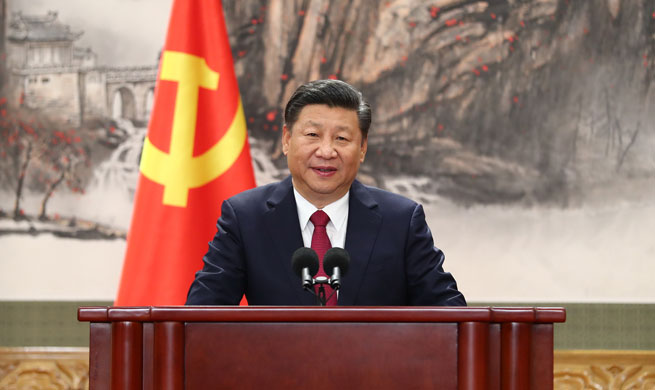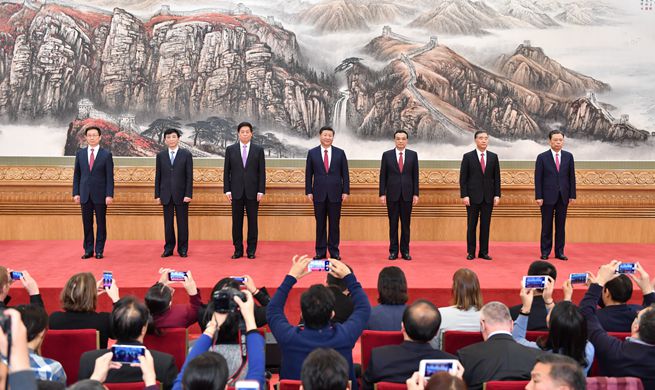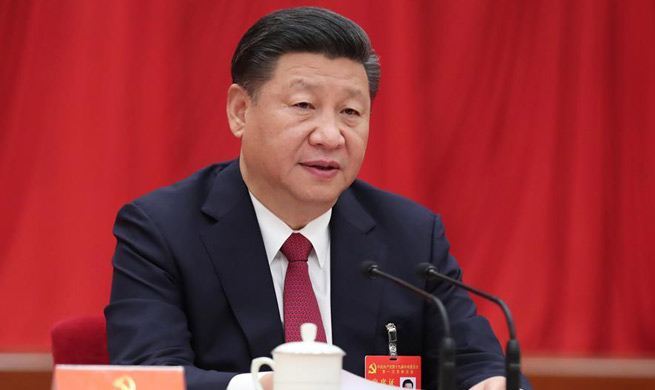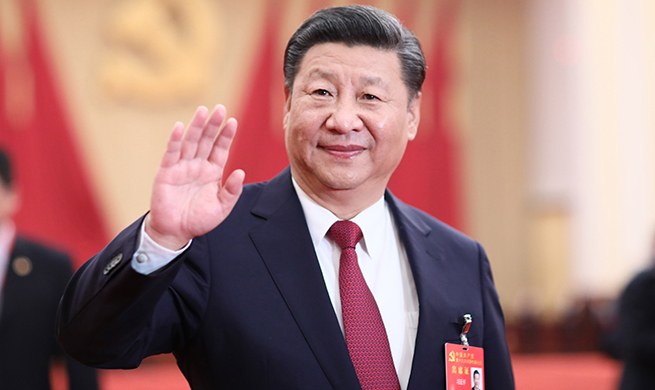by Muhammad Tahir
ISLAMABAD, Oct. 26 (Xinhua) -- U.S. Secretary of State Rex Tillerson's remarks that the Trump's administration will pursue conditions-based relations with Pakistan is under fire in Pakistan as such an approach is considered as policy of coercion.
Tillerson made the remarks in Afghanistan ahead of his a few hours stopover in Pakistan, during which he led a delegation in talks with Pakistan's top civil and military leaders on Tuesday on bilateral and regional issues, focusing on cooperation for peace and reconciliation in Afghanistan.
The U.S. secretary of state had told reporters at the Bagram military base that the United States will adopt a conditions-based approach towards Pakistan and the approach will be based whether they take action against the Afghan Taliban and other terrorist groups whom he alleged "receive support in Pakistan."
"Pakistan needs to take a clear-eyed view of the situation that they're confronted with in terms of the number of terrorist organizations that find safe haven inside of Pakistan," he told reporters.
Tillerson's statement was not welcomed in Pakistan and the country's Senate Chairman Raza Rabbani also dismissed the statement as "unacceptable" and said the U.S. secretary had acted like a "viceroy."
Independent analysts are critical at what they believe Tillerson's anti-Pakistan comments in a third country and insist he should have shared his demands, concerns or complaints with Pakistani leaders in bilateral meeting instead of using the media and that also in a third country.
Said Nazir Momand, a retired army brigadier, said the United States has always tried to dictate Pakistan and attach conditions for relations.
Talking to Xinhua on Wednesday, Momand referred to several previous U.S. laws that were used to slap sanctions on Pakistan under flimsy excuse like they had imposed curbs on Pakistan over Pakistan's peaceful nuclear program and now under the pretext of terrorism.
"There is no end to the U.S. demands. They want to exert pressure on Pakistan under different excuses. If Pakistan accepts one demand, Americans will come with more demands and conditions," Momand said.
The former defense official advised the government to "not surrender to the American dictates" and to ensure the country's sovereignty.
He said Pakistan should also forcefully push its own demands as if the U.S. wants to protect own interests, then Pakistan has similar right.
Foreign Minister Khawaja Asif said that Pakistani civilian and military leaders have openly expressed their views during meeting with Tillerson and his team.
Asif told a section of the media after talks with Tillerson late Tuesday that Pakistani leaders told the U.S. delegation that Pakistan faces difficulties because of the U.S. policies in the region.
Pakistan's former ambassador Ayaz Wazir also criticized Tillerson's anti-Pakistan remarks he had offered during his Afghanistan's visit.
"Pakistan and the U.S. have bilateral mechanism to discuss all issues. He could raise all issues with Pakistani leaders during bilateral talks instead of issuing threats to Pakistan while speaking in a third country," Wazir told Xinhua on Wednesday.
"It is to be regretted that Tillerson also adopted threatening posture like President Donald Trump had when he announced his strategy for Afghanistan and South Asia in August," he said.
It is widely believed in Pakistan that the country faced the problem of violent extremism and terrorism because of the U.S. policies in the region, especially when the country joined the U.S.-led coalition after the 9/11 attacks.
They also thought that the U.S. has ignored Pakistan's sacrifices against terrorism and the role of Pakistan to facilitate the U.S. military operation against the Taliban regime in Afghanistan in late 2001.
A vast majority in Pakistan are of the view that the U.S. is shifting the blame to Pakistan for its failure to win war in Afghanistan. Pakistani officials have publicly and repeatedly said that making Pakistan as a scapegoat for U.S.-NATO debacle in Afghanistan will not work.
Some Afghans also blame Trump's policy to pursue military option in Afghanistan as a major obstacle in peace and stability in the region.
Shanawaz Tanai, former Afghan defense minister, said the United States and its western allies have not shifted focus towards political solution to the Afghan problem and still insist on the use of force.
"The U.S. must realize that war is no solution and the U.S. and its NATO allies could not win this war in 16 years despite using their military might. Security in Afghanistan is still fragile and the U.S. should now use political option to end the conflict," Tanai told Xinhua from Kabul via telephone.

















